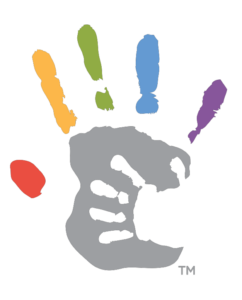What is ABA Therapy?
ABA or Applied Behavior Analysis is the science of behavior. ABA therapy focuses on improving specific behaviors, such as social skills, communication, reading, and academics, as well as adaptive learning skills, by using positive reinforcement and other behavior-modification techniques. The principles of ABA are applied to individualized treatment plans for each specific person diagnosed with autism spectrum disorder (ASD) and other developmental disabilities.
How does ABA Therapy work?
ABA Therapy works by breaking down complex behaviors into smaller, more manageable tasks. Through the use of positive reinforcement, the ABA therapist will reward the individual for completing each task. This helps to reinforce the desired behavior and encourages the individual to continue to work towards the goal. The ABA therapist will also use other techniques, such as prompting, modeling, and shaping, to help the individual learn the desired behavior. We pride ourselves on being very specific to pinpoint the needs of each individual we serve. Each individual has their own specific goals and plan based on assessments completed by the individual, caregivers, teachers, and observations from behavior analysts.
Where can ABA Therapy take place?
ABA Therapy can take place in a center, home, community, or school setting. Each location brings its own benefits for learning.
Our Center-based services are located in East Central Indiana. We have 3 locations that focus on specific age groups. We serve clients from 2 years through the age of 22, currently. Our Early Learner’s Center is our biggest location featuring ABA Therapy, a Developmental Preschool, and our training facility. The ELC serves children ages 2-7 years. Our Main Muncie Center location features ABA therapy, a Speech Therapy office, and a mock classroom setting to accommodate the needs of students from elementary through high school. The Muncie Main Center serves clients ages 7-22. Our Teen Learning Center features ABA therapy, Medicaid Waiver Services offices, and social skills learning center. The additional Muncie Center serves clients ages 13-22. The centers are designed to provide a more intensive and structured therapy session, as well as access to specialized equipment and resources for each targeted age group at varied skill levels.
Home-based ABA services provide an opportunity for our practitioners to partner with our families to discuss and observe the implementation of their child’s treatment plan, including behavior interventions. We believe through this partnership we can work together to provide better outcomes for our clients and their family. This service aids in a child’s skills emerging in clinic-based services to generalizing across their environments.
Community ABA Services provides our clients with a unique learning opportunity that will expand an individual’s environmental experiences. Services in the community setting allows for more naturalistic and flexible therapy sessions, as well as natural support and resources. It provides the opportunity for the individual and their family to learn more about fun opportunities available in their community and the resources available to support participation within the community that enhances their experience to feel connected to others in their community.
School-based ABA Services allow us to expand our partnership with families to include school personnel as we transition to or support our clients in the classroom setting. Together we are able to structure an individualized education plan (IEP) or a formal plan (504) with unique support(s) for our clients to succeed socially and academically in the classroom and reach their full potential.
Who is involved in ABA Therapy?

As a caregiver, you are the most essential member of our team! In fact, we consider you our partner. ABA therapy is a team collaboration. Our clinicians rely on the information and concerns provided by you, the caregiver to navigate the best way to meet the needs of your child and your family. To ensure we are all working toward goals that are meaningful for your child and for you, we will schedule monthly team meetings to review treatment progress, update assessments, and discuss data collected from treatment. As essential members of our team, you, the caregiver will have direct access to call, text, or email your BCBA and BCaBA. We believe communication and information are essential to your child’s success.
A Board Certified Behavior Analyst (BCBA) is a graduate-level certificate holder who has completed a master-level degree, 2,000+ hours of supervised fieldwork and passed the certification exam through the Behavior Analysis Certification Board (BACB). BCBAs must comply with the BACB code of ethics and pursue and yearly maintain additional continuing education units (CEUs). Each client at BAI is assigned a lead BCBA to their case. With over a decade of service, we have learned to truly provide each client with our best, we have a collaborative team approach with BCBAs, BCaBAs, Licensed Teachers, LMHC, and Speech Therapy team. This provides our clients and their family with a multi-disciplinary approach to best support their child’s unique needs as we work together with families to help our clients reach their full potential.
A Board Certified Assistant Behavior Analyst (BCaBA) is an undergraduate-level certificate holder who has completed an undergraduate degree, 1,500+ hours of supervised fieldwork, and passed the certification exam through the Behavior Analysis Certification Board (BACB). BCaBA must comply with the BACB code of ethics, pursue and yearly maintain additional continuing education units (CEUs), and provide services under the direct supervision of a BCBA. At BAI our BCaBAs work very closely with our BCBAs and contribute to individualized treatment for our clients, provide staff training, and provide support for families. BAI BCBAs are required to oversee a specific number of hours per week for their BCaBa.
A Registered Behavior Technician (RBT) has a minimum of a high school diploma and has completed a 40-hour training and competency assessment overseen by a master-level assessor and passed a certification exam through the Behavior Analysis Certification Board (BACB). RBTs must comply with the BACB code of ethics. RBTs are trained and supervised by a BCaBA and BCBA. RBTs are responsible for providing one-on-one direct ABA instruction produced by the BCBA or BCaBA to our clients. RBTs are not allowed to provide services on their own, they must be supervised by a BCaBA or BCBA.

RBT’s complete video modules in Relias concerning Applied Behavior Analysis. RBTs, BCaBAs, and BCBAs all complete a certification exam through the BACB. All employees are trained in Crisis Prevention Institute (CPI).
Need more information?
We know, it’s a lot of information to take in. If you feel as if you need more explanation or are ready to get the process started – contact us today. Our clinical team will be ready to meet, answer questions, and guide you in the direction that will best suit your loved one.
What to bring to your initial meeting?
We are excited to meet you and your child. We look forward to hearing the story of your experiences and those of your child and together learning how BAI can best support you.
Any and all active insurance cards
Copy of diagnostic report provided by a licensed provider
Any additional documentation (e.g. IEPs, previous treatment plans, etc.)
Any and all questions!
References and Resources
BACB



